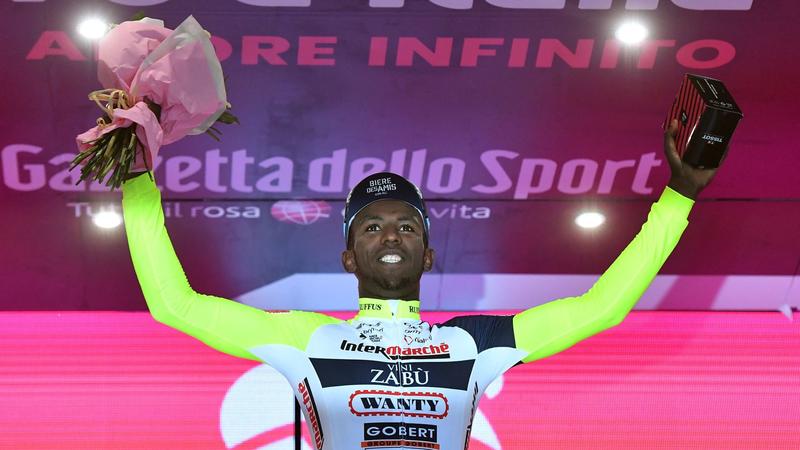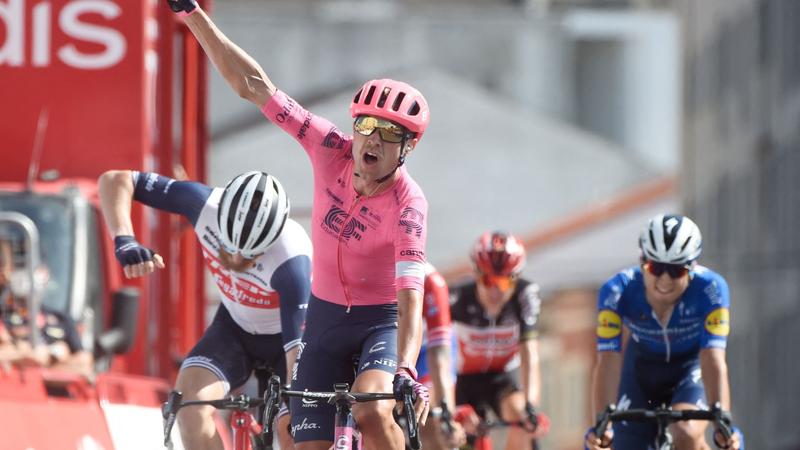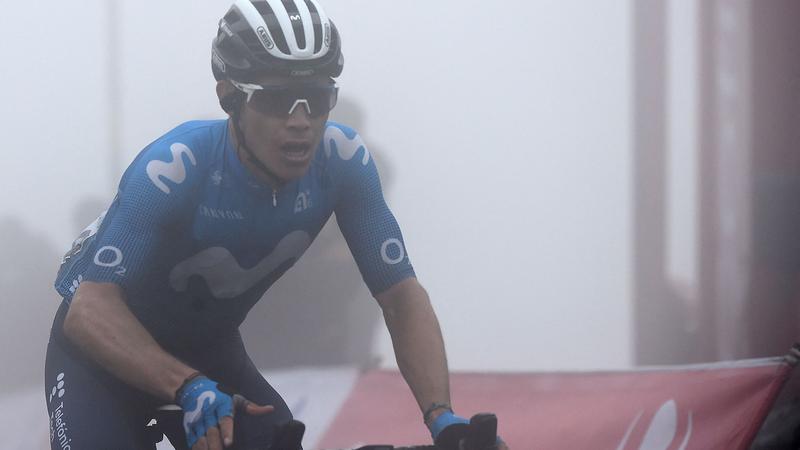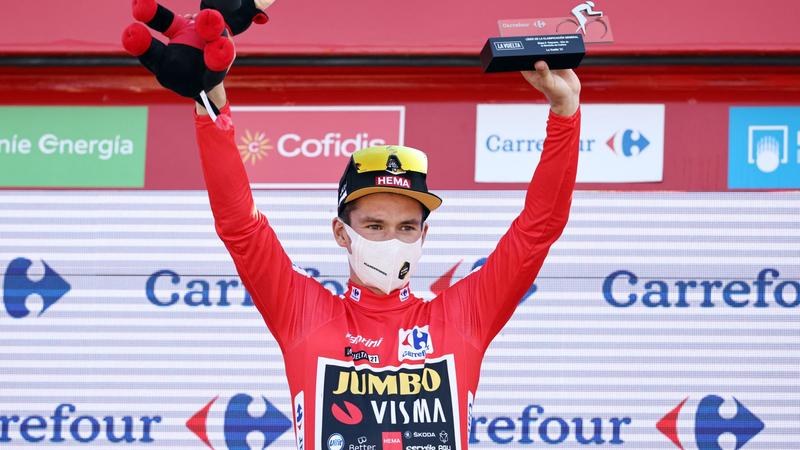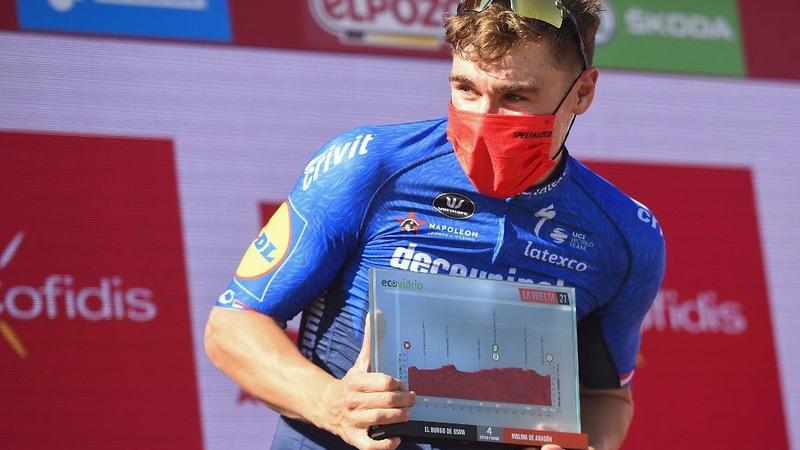Tour de France - Stage by Stage
The 102nd edition the Tour de France will take 21 days and cover 3,360 kilometres.
The 2015 Tour de France will start in the Dutch city of Utrecht on Saturday, wind its way through Belgium to France before traversing the north and south of the country to finish in Paris on July 26.
The race looks set to be split into two fairly distinct sections, with the opening nine stages predominantly flat as the peloton works their way through Netherlands, Belgium and the north of France.
After the first rest day on July 13, Le Tour will move to the Pyrenees, which will begin 11 days of virtually exclusive mountainous racing, culminating in the famous climb up Alpe d'Huez on July 25, before the traditional finale down the Champs Elysees.
Perform takes you through a day-by-day preview of the 102nd edition of the world's most famous cycling race.
Stage 1 - July 4 - Utrecht - 13.8km (individual time trial)
Located just over 40 kilometres south of Amsterdam, the Roman-founded city of Utrecht will host the 2015 Tour prologue. Utrecht is dead flat, which should make for some fast ITT times, although thunderstorms are predicted in the late afternoon - so if they occur earlier than expected, it could wreak havoc. Tony Martin (Etixx-Quick Step) and Fabian Cancellara (Trek Factory) are traditional favourites for ITT stages.
Stage 2 - July 5 - Utrecht to Zeeland - 166km
Another flat stage - the highest point is just six metres above sea level - the sprinters will no doubt be targeting an early win on the island of Neeltje Jans, although classic Dutch coastal winds could break the peloton up. This will make the main general classification (GC) contenders wary. But if, as expected, the stage ends in a bunch sprint, Mark Cavendish (Etixx-Quick Step), Alexander Kristoff (Katusha) and Nacer Bouhanni (Cofidis) should go close to line honours.
Stage 3 - July 6 - Anvers to Huy - 159.5km
In the first of two stages inspired by the one-day classics, this Belgium-based stage will finish on the Mur de Huy - a 1.3km climb with a maximum gradient of 19 per cent - which also features on La Fleche Wallonne. It could be an opportunity for one of the GC contenders to make an early statement, although it is more likely that a classics specialist like 2015 La Fleche Wallonne champion Alejandro Valverde (Movistar) or a versatile sprinter like Peter Sagan (Tinkoff-Saxo) will triumph.
Stage 4 - July 7 - Seraing to Cambrai - 223.5km
After last year's cobblestone-based stage saw Chris Froome (Team Sky) crash twice and retire, plus eventual champion Vincenzo Nibali (Astana) put time into the rest of the peloton, this stage is one of the most anticipated of 2015. With seven sectors of 'pave' totalling 13.3km, there will be plenty of locations for mayhem, with 2015 Paris-Roubaix champion John Degenkolb (Giant Alpecin) a potential stage winner. Lars Boom (Astana) won the corresponding stage in 2014.
Stage 5 - July 8 - Arras to Amiens Metropole - 189.5km
Expect a breakaway to be reeled in late in the north-east of France, with the sprinter-based teams likely to have pencilled this stage in as a chance for victory. Again Cavendish and Kristoff will likely do battle, although the potential for crosswinds could see a reduced final bunch, which may suit the likes of Sagan and Michael Matthews (Orica-GreenEDGE). In a good omen for Matthews, an Australian won the last time Le Tour came to Amiens, with Stuart O'Grady taking line honours.
Stage 6 - July 9 - Abbeville to Le Havre - 191.5km
Three relatively brief category-four climbs will feature in this stage along the north coast of France. Crosswinds are even more likely than the day before, which could hurt the sprinters and any GC contender who is asleep at the wheel. The finish in the harbour town of Le Havre could suit a late breakaway from someone like Simon Gerrans (Orica-GreenEDGE) or Geraint Thomas (Team Sky), as the road rises 75 metres in the final 1.5km.
Stage 7 - July 10 - Livarot to Fougeres - 190.5km
Another day for the sprinters - one of only seven for the whole Tour - although the lumpy profile may suit a breakaway. As the peloton moves from Normandy to Brittany, expect plenty of the smaller teams to test their bigger rivals by sending riders down the road. But in the end, this stage will be too critical to the likes of Cavendish and their green jersey aspirations. Andre Greipel (Lotto-Soudal), Bryan Coquard (Europcar) and Arnaud Demare (FDJ) will also take a shot at glory.
Stage 8 - July 11 - Rennes to Mur-de-Bretagne - 181.5km
While the majority of this stage remains relatively flat, the category-three ascent to the finish will suit the climbers. With a team time trial (TTT) and rest day to follow, this could be an opportunity for any yellow-jersey contender, who is feeling fresh, to fire an early warning shot, with the Pyrenees just around the corner. Known as the Alpe d'Huez of Brittany, the Mur-de-Bretagne is a 2km climb with sections of 15 per cent gradient. In 2011, Cadel Evans won here on his way to overall victory.
Stage 9 - July 12 - Vannes to Plumelec - 28km (team time trial)
Orica-GreenEDGE - who won the last TTT on the Tour in 2013 and the equivalent stage at this year's Giro d'Italia - and world TTT champions BMC will be favourites for this stage. If the latter triumph that could launch Tejay van Garderen into yellow, while Team Sky will be looking for a strong performance after struggling at equivalent stages at the Giro and Criterium du Dauphine. But with eight days racing in everyone's legs, fatigue will no doubt play a part.
Stage 10 - July 14 - Tarbes to La Pierre-Saint-Martin - 167km
After a rest day, it will be time for the mountain goats to come out to play. The Col du Soudet - a 15.3km climb in the Pyrenees - represents the first proper mountain-top finish of the 2015 Tour. With GC candidates such as Nibali, Froome and Alberto Contador (Tinkoff-Saxo) likely to be watching each other and keen to keep at least some powder dry for the Alps in the final week, do not be surprised if a lesser-light, who lost time over the first nine days, wins the stage on Bastille Day.
Stage 11 - July 15 - Pau to Cauterets/Vallee de Saint Savin - 188km
A brutal climbing day with one category-four ascent, three category threes, a category-one ride up the Col d'Aspin and a 'hors categorie' (HC - beyond categorisation) hike up Col du Tourmalet. After the latter of those two climbs, the day's work will finish on the Cote de Cauterets. The lumpiness of stage 11's profile could suit Michael Rogers (Tinkoff-Saxo) or Pierre Rolland (Europcar). But regardless of who wins the stage, the main focus will again be on the main GC rivals.
Stage 12 - July 16 - Lannemezan to Plateau de Beille - 195km
The final day in the Pyrenees and arguably the toughest. It culminates on a HC climb to Plateau de Beille after two category-one peaks. Breakaways and lesser lights will take a back seat as the man in yellow and his main adversaries throw everything at each other ahead of four days of relatively easier riding. Samuel Sanchez (BMC) will remember this finish, having missed out on the win in 2011, while Thomas Voeckler (Europcar) has fond memories after twice defending yellow here.
Stage 13 - July 17 - Muret to Rodez - 198.5km
As the peloton departs the foothills of the Pyrenees, this medium mountain stage looks set to be a classic tête-à-tête between the sprinters and a breakaway. This is the type of stage that Sagan has often made his own in recent years, nicking points off the pure sprinters. Sylvain Chavanel (IAM Cycling) would have eyed this stage in his pomp, while Joaquim Rodriguez (Katusha) - if well adrift in the GC standings - could also challenge.
Stage 14 - July 18 - Rodez to Mende - 178.5km
With a hilly final 40km, breakaway riders who can climb will target this stage, with Rui Costa (Lampre-Merida) - if he is out of GC contention - a possible chance for line honours. A short and sharp finale will suit the likes of Froome and Nairo Quintana (Movistar) of those challenging for yellow. Similar to the Mur de Huy and Mur-de-Bretagne, a late surge could be enough to clinch victory where Rodriguez triumphed in 2010.
Stage 15 - July 19 - Mende to Valence - 183km
Early climbs, a category-two ascent with around 50km remaining, and then a flat finish sets this stage up well for the fast men. Kristoff, who climbs slightly better than most sprinters may try to rope his Katusha colleagues into helping him over the early hills to leave the likes of Cavendish in his wake but it is likely the majority of the field will come together on the outskirts of Valence for a headlong dash to the line.
Stage 16 - July 20 - Bourg-de-Peage to Gap - 201km
The last week of Le Tour will begin with a rough inversion of stage 15 with a flat start, which gradually rises into the foothills of the Alps, although a descent into Gap could give the sprinters some hope of victory on the second-longest stage of the race. Watch for Tony Gallopin (Lotto-Soudal), Voeckler, Rodriguez or Gerrans to edge ahead and hold on, while a potentially reduced bunch sprint would be perfect for Sagan or Matthews. Costa won here in 2013.
Stage 17 - July 22 - Digne-les-Bains to Pra Loup - 161km
After the second of two rest days, the peloton will head into the Alps proper. The final four days before Paris will be all about fatigue, with early gains unlikely to mean much if riders have spent too many tickets in the first two weeks. The category-one ride up Col d'Allos will be the main feature of this stage, although the final category-two surge to Pra Loup will also sort the wheat from the chaff. Romain Bardet (Ag2r-La Mondiale) won here in the Criterium du Dauphine.
Stage 18 - July 23 - Gap to Saint-Jean-de-Maurienne - 186.5km
This is classic Alpine riding with the road constantly rising and falling from start to end. The 22km climb up the Col du Glandon - a HC peak - awaits the peloton 40km from the finish. The descent down Col du Glandon could see a desperate GC candidate attempt to pick up precious time - Nibali or Contador would be perfect examples. The focus will be well and truly on that pair and the likes of Froome and Quintana by this stage.
Stage 19 - July 24 - Saint-Jean-de-Maurienne to La Toussuire - 138km
One category-two and two category-one climbs, split by a HC ride up the Col de la Croix de Fer, will hurt legs that have ridden for 18 of the previous 20 days. The final 18 kilometres rise almost 1000 metres, which will give plenty of opportunities for attacks, counter-attacks and recoveries. Expect the smaller climbers like Quintana, Nibali and Contador to dominate, while Froome will be hoping his support riders are around to cover his rivals.
Stage 20 - July 25 - Modane Valfrejus to Alpe d'Huez - 110.5km
When the Tour's organisers decided to put Alpe d'Huez on the penultimate day of the 2015 race, they would have hoped that at least two GC candidates would go head-to-head on the famous mountain. Not like in 2013 when Froome simply cruised to his overall victory. The peloton will ride up the Col de la Croix de Fer for the second consecutive day, meaning there will be two HC climbs. Both Rolland and Christophe Riblon (Ag2r-La Mondiale) have won here previously.
Stage 21 - July 26 - Sevres to Paris - 109.5km
With race etiquette meaning the yellow-jersey wearer is considered untouchable on the final day, the traditional finale down the Champs Elysees will again be a stage for the fast men. Marcel Kittel - the 2013 and 2014 winner of the final stage - is not riding this year, so we could see Cavendish celebrate his second green jersey in the French capital. The Brit has won here four times previously. The last Frenchman to win was Jean-Patrick Nazon in 2003. About time then?


















